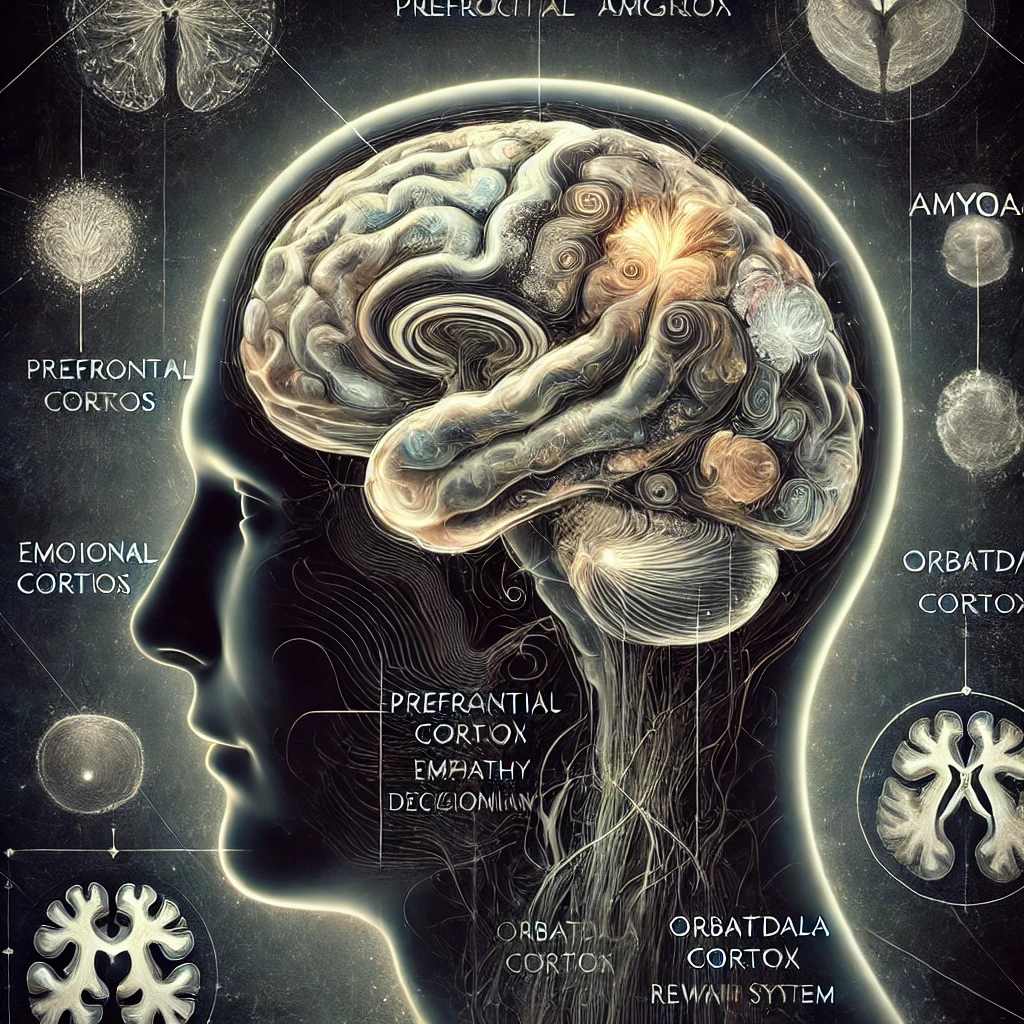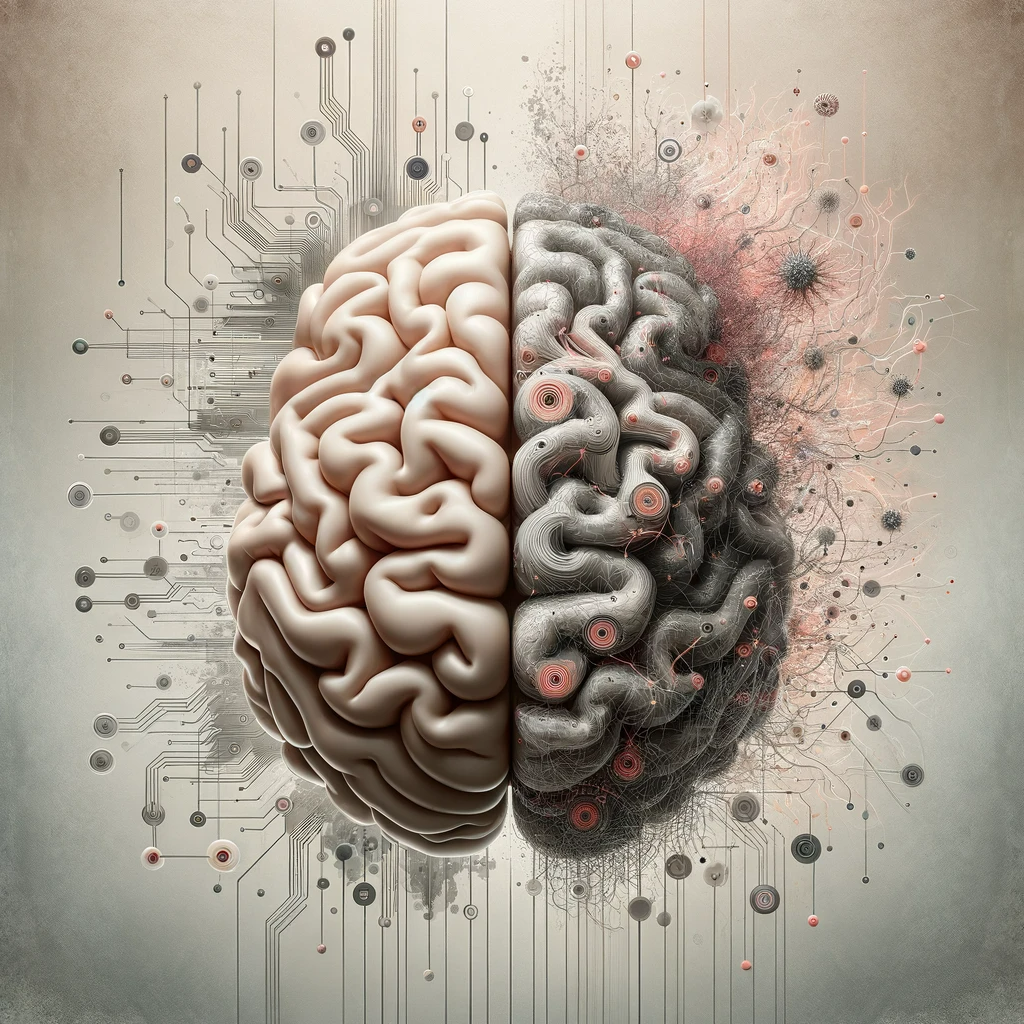Research over recent decades has increasingly uncovered links between various neurological disorders and an elevated propensity for criminal behaviour. While the relationship is complex and often influenced by a range of social, psychological, and biological factors, certain conditions tend to impair judgement, reduce impulse control, and alter emotional regulation, all of which are critical aspects of responsible behaviour. Disorders such as epilepsy, schizophrenia, and certain forms of dementia have been examined in forensic settings to understand how they may contribute to acts that violate legal norms.
One key finding is that neurological dysfunctions affecting the frontal lobes of the brain, responsible for executive functions like decision-making and impulse control, are often associated with crime. Individuals with conditions like frontal lobe syndrome may exhibit aggressive or socially inappropriate behaviour due to impaired self-regulation. Similarly, research into antisocial personality disorder, which has neurological underpinnings, suggests deficits in the amygdala and prefrontal cortex might contribute to a lack of empathy and an increased risk of violent acts.
Furthermore, emerging evidence indicates that disorders like Tourette’s syndrome, although primarily characterised by motor and vocal tics, can be accompanied by impulse control challenges that, in rare cases, lead to inappropriate or even unlawful actions. In the context of mental health, it is crucial to differentiate between deliberate criminal intents and behaviours that arise from uncontrollable neurological impairments. This distinction has significant implications for the treatment of offenders and the broader criminal justice system’s approach to accountability and rehabilitation.
Neurological conditions such as Huntington’s disease and multiple sclerosis have also been reported to cause cognitive and behavioural changes that could increase the risk of engaging in crime. These alterations often involve difficulties with emotional processing, risk assessment, and moral reasoning, suggesting that the neurological basis for criminal behaviour is not merely a matter of will or morality but can stem from profound changes in brain structure and function. Recognising these links is essential for developing fair and effective responses to criminal acts committed by individuals with neurological disorders.
Impulse control disorders and violent acts
Impulse control disorders (ICDs) represent a critical intersection between neurological dysfunction and criminal behaviour. Individuals living with ICDs such as intermittent explosive disorder, kleptomania, pyromania, and pathological gambling often find themselves incapable of resisting harmful urges, leading, in some cases, to acts of violence, theft, or arson. These disorders are characterised by a failure to resist a temptation, urge, or impulse that may harm oneself or others, and they highlight the significant role that mental health issues can play in criminal acts.
Neurological studies have demonstrated that impulse control is largely governed by the prefrontal cortex, a region of the brain heavily implicated in judgement, risk evaluation, and emotion regulation. Disruptions in this area, whether due to congenital abnormalities, traumatic injury, or degenerative disease, can lead to severe deficits in behavioural regulation. Neuroimaging studies have confirmed that individuals with ICDs often exhibit reduced activity in the prefrontal cortex and abnormalities in the serotonergic and dopaminergic systems, both of which are essential for impulse regulation and mood stability. When impulse control is compromised, the risk of engaging in crime naturally increases, especially in situations charged with emotional intensity or frustration.
In many legal defences involving individuals with documented impulse control disorders, it is argued that the offender’s capacity for self-regulation was so impaired that the criminal behaviour was not fully voluntary. For example, those suffering from intermittent explosive disorder may commit acts of serious violence that are disproportionate to any provocation. Crucially, these individuals often express profound remorse afterwards, highlighting the distinction between premeditated crime and acts driven by uncontrollable impulses related to neurological disorders.
Moreover, the overlap between impulse control disorders and other mental health conditions complicates the understanding of criminal acts. Disorders such as bipolar disorder and attention deficit hyperactivity disorder frequently exhibit impulsivity as a symptom, and when these conditions remain untreated, individuals may unknowingly pose a risk of committing impulsive offences. Substance abuse, commonly comorbid with impulse control disorders, further exacerbates the likelihood of violent or criminal behaviour, creating a challenging dynamic for mental health professionals and the criminal justice system alike.
Recognising the role of impulse control disorders in crime necessitates a nuanced approach not only in clinical settings but also in courtrooms. It involves appreciating the ways in which neurological and mental health impairments can diminish an individual’s ability to make rational, law-abiding decisions. Treatment strategies focused on behavioural therapy, medication management, and support for underlying neurological disorders are essential interventions aimed at reducing the risk of reoffending and promoting safer community integration for affected individuals.
The role of brain injuries in criminal conduct
Traumatic brain injury (TBI) has been extensively studied as a contributing factor to criminal behaviour, particularly because of its impact on areas of the brain responsible for regulating emotions, impulsivity, and decision-making. Damage to the frontal lobes, especially the prefrontal cortex, often leads to drastic changes in personality and behaviour, including increased aggression, poor impulse control, and a diminished ability to foresee the consequences of one’s actions. These neurological impairments can make individuals more prone to acts of violence or other forms of antisocial behaviour that can result in crime.
Numerous case studies and forensic investigations have highlighted patterns where individuals with a history of moderate to severe TBI demonstrate heightened risks for criminal activity. Incidents involving violent offences, domestic abuse, and property damage are often reported among those with brain injuries, which underscores the connection between neurological disorders and unlawful conduct. In such cases, it is not merely a matter of character or intent; rather, functional impairments severely compromise emotional regulation and social judgment, thereby increasing vulnerability to poor decision-making and criminal actions.
Moreover, the timing and severity of the brain injury play critical roles in determining its potential impact on future behaviour. Injuries sustained during adolescence, a crucial period for the development of executive functions, tend to be more strongly associated with later delinquency and criminality. Adolescents with TBIs may struggle with school discipline, display heightened irritability, and engage in riskier behaviours, all of which can be precursors to encounters with the criminal justice system. This intersection between neurological disorders and crime points to the urgent need for early intervention and support strategies targeted at young individuals recovering from brain injuries.
There is also a notable link between repeated mild TBIs, such as those experienced by athletes in contact sports or military personnel, and long-term behavioural and cognitive issues. Chronic traumatic encephalopathy (CTE), a progressive neurodegenerative condition linked to repeated head trauma, has been associated with symptoms including aggression, depression, impulsivity, and suicidal tendencies. These mental health problems, compounded by underlying neurological damage, contribute not only to personal and social difficulties but may also increase the likelihood of violent crime in affected individuals.
Complicating matters further, individuals with brain injuries often grapple with co-occurring challenges such as substance abuse, homelessness, and psychiatric disorders, all of which can exacerbate criminal behaviour. Substance misuse, particularly alcohol and drugs, is frequently utilised as a coping mechanism for the cognitive and emotional struggles resulting from a TBI, but it also impairs judgement and increases the risk of engaging in illegal activities. The interplay between mental health issues, neurological damage, and environmental factors creates a multifaceted risk profile that must be addressed holistically to reduce criminal recidivism.
In forensic settings, the presence of a brain injury can be a crucial element in understanding an individual’s actions and mental state at the time of an offence. Neuropsychological assessments, brain imaging, and detailed medical histories are increasingly utilised to provide courts with a fuller picture of the extent to which neurological impairments may have contributed to criminal acts. Although the existence of a brain injury does not automatically absolve individuals of responsibility, it often informs sentencing decisions, rehabilitation planning, and considerations regarding the most appropriate interventions for offending individuals with such conditions.
Neurodegenerative diseases and altered decision-making
Neurodegenerative diseases, such as Alzheimer’s disease, Parkinson’s disease, and frontotemporal dementia, profoundly affect cognition, emotion, and behaviour, often altering an individual’s capacity for sound decision-making. These progressive neurological disorders lead to the gradual deterioration of brain structures crucial for executive functions, such as the frontal lobes, resulting in impaired judgement, emotional dysregulation, and reduced impulse control. In some cases, these neurological changes can manifest in behaviour considered socially inappropriate or even criminal, presenting significant challenges for both mental health professionals and the legal system.
Frontotemporal dementia (FTD) has received particular attention within forensic psychology due to its strong association with personality changes and disinhibited behaviours. Research has shown that individuals with behavioural variant FTD may engage in acts such as theft, sexual misconduct, or public disturbances, often without a full understanding of the social and legal boundaries they are violating. Unlike typical criminal acts driven by malice or intent, these behaviours are frequently a direct consequence of neurodegeneration affecting self-awareness and moral reasoning.
Similarly, Alzheimer’s disease in its later stages can lead to episodes of aggression, agitation, and wandering, occasionally resulting in confrontations with law enforcement. The cognitive impairments associated with Alzheimer’s often erode memory, problem-solving skills, and risk assessment abilities, meaning that behaviours leading to minor crimes, such as trespassing or shoplifting, may not stem from deliberate criminal intent but from confusion and disorientation. Mental health evaluations are crucial in distinguishing these cases from wilful misconduct, ensuring that individuals with major neurocognitive disorders receive appropriate care and legal protections.
Parkinson’s disease, although primarily known for its motor symptoms, can also impact decision-making capacities, especially when complicated by Parkinson’s disease dementia or side-effects from dopaminergic medications. Some individuals develop impulse control disorders, including compulsive gambling, hypersexuality, or excessive shopping, behaviours which can lead to financial crime or other legal transgressions. The neurological link between treatment-induced changes and subsequent criminal activity underscores the integral role of medication management in mitigating risks.
Beyond individual pathology, the broader implications for society include addressing the adequacy of current legal frameworks in dealing with those whose criminal behaviour stems from unavoidable neurodegenerative decline. Courts are increasingly required to consider expert testimony from neurologists, psychiatrists, and neuropsychologists to gauge the extent to which a neurological disorder compromised an individual’s mens rea—the intention or knowledge of wrongdoing—at the time of the offence. This intersection between criminal responsibility, mental health, and neurodegenerative disease necessitates a compassionate yet legally sound approach, balancing public safety with the rights and dignity of affected individuals.
Ultimately, recognising the behavioural impacts of neurodegenerative diseases is vital for developing more humane responses within the criminal justice system. Specialised interventions, such as therapeutic care homes or tailored probation programmes, may provide alternatives to traditional punitive measures, reflecting a deeper understanding of how progressive neurological disorders influence behaviour and decision-making capacity over time.
Legal and ethical considerations in court cases involving neurological disorders
The intersection of neurological disorders and the criminal justice system presents significant legal and ethical challenges that continue to evolve alongside advances in neuroscience. Central to these cases is the question of criminal responsibility: to what extent should an individual be held culpable for a crime committed under the influence of a neurological condition that impairs cognitive, emotional, or behavioural functioning? Courts often grapple with determining whether neurological impairments diminish an offender’s capacity to form intent, appreciate the wrongfulness of their actions, or control their behaviour, calling into question traditional concepts of free will and moral agency.
One major ethical consideration involves the use of neuroimaging and other neurological assessments as evidence in criminal trials. Techniques such as functional MRI and PET scans have been introduced to demonstrate abnormalities in brain structure or function that could explain certain criminal behaviours. While these tools can provide valuable insights into the neurological underpinnings of conduct, concerns arise regarding their interpretation, potential for bias, and the risk of over-reliance on scientific evidence that may not fully capture the complexity of human behaviour. The presentation of brain scans in court may inadvertently lead to deterministic views of behaviour, undermining notions of personal accountability and potentially influencing juries beyond the evidence’s probative value.
In terms of legal standards, defendants with neurological disorders may seek to raise defences such as insanity or diminished capacity. However, definitions and thresholds for such defences vary significantly across jurisdictions, leading to inconsistencies in outcomes. Importantly, mental health assessments must differentiate between disorders that fundamentally impair one’s ability to distinguish right from wrong, such as severe cases of frontotemporal dementia, and conditions that, while impactful, do not eliminate criminal intent. A nuanced understanding of how neurological dysfunction affects behaviour is essential to ensure just outcomes in such cases.
Ethical dilemmas also extend to sentencing. When offenders are found to have committed crimes in the context of significant neurological impairment, courts must balance the need for public safety with principles of rehabilitation and proportionality. There is a growing argument for the increased use of tailored interventions, such as secure medical facilities and specialised rehabilitation programmes, rather than conventional incarceration. Punishing individuals whose crimes stem largely from involuntary neurological decline raises profound concerns about justice, dignity, and the very purpose of criminal sanctions.
Moreover, the post-sentencing management of individuals with neurological disorders poses additional legal and ethical questions. Prison settings are often ill-equipped to handle complex neurological and mental health needs, potentially exacerbating symptoms and leading to further behavioural issues. This reality has prompted advocacy for reforms that address healthcare access within correctional systems and promote alternative sentencing options where appropriate, reflecting a compassionate approach grounded in medical and psychological understanding.
Importantly, the participation of experts in neurology, psychiatry, and psychology in legal proceedings is vital for informing courts about the implications of neurological disorders on culpability and risk. Ethical standards require that these professionals provide objective, evidence-based testimony that acknowledges the limitations of current knowledge and avoids overstating the connection between brain abnormalities and specific behaviours. Ongoing training for legal practitioners regarding the interpretation of neuroscientific evidence is equally critical to safeguarding the rights of defendants while upholding the integrity of the justice system.
The broader societal implications of integrating neurological knowledge into criminal law cannot be overlooked. As neuroscience continues to uncover more about the brain’s role in behaviour, questions about free will, moral responsibility, and the future of punishment and rehabilitation will become ever more pressing. Thoughtful engagement with these complex legal and ethical issues is essential to ensure that responses to crime involving individuals with neurological disorders remain just, humane, and informed by the best available evidence.


